Coronavirus: The car boot sale that's back on its feet
- Published
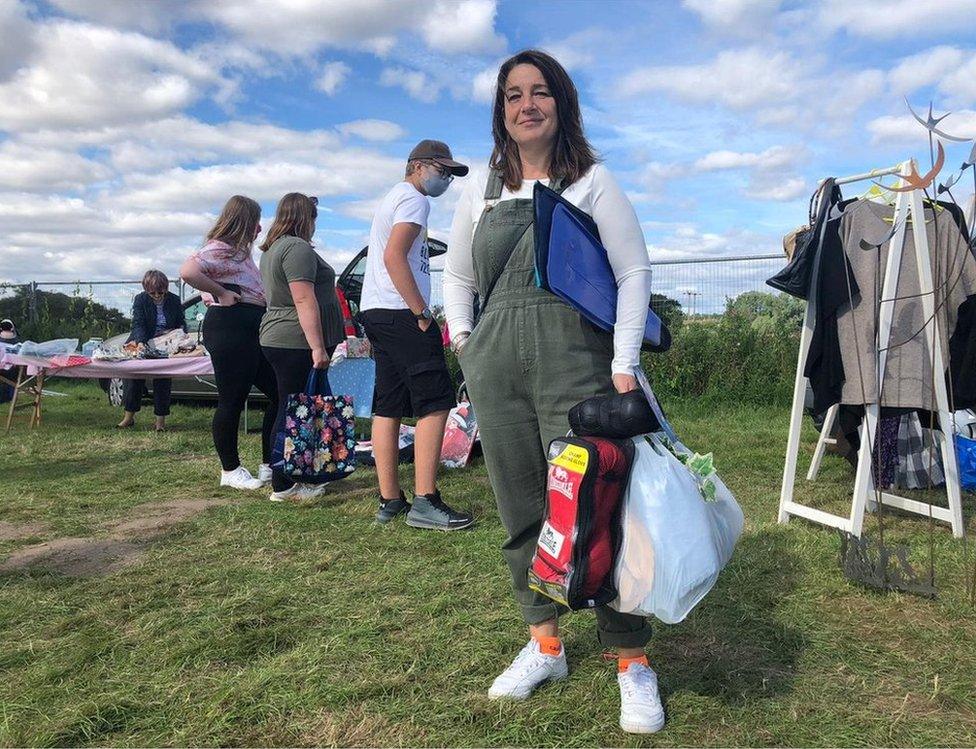
Kelly Mallett has spent £15 on "random things" at Arminghall - and got a pair of flippers for free
Bargain-hunters have been up since dawn, giving a warm welcome back to bric-a-brac sellers at their nearest car boot sale. How does a post-lockdown rummage work and what have people made of the changes?
For car boot aficionados, nothing quite compares to the thrill of finding a bargain amongst the piles of unwanted goods.
Mother-of-three Kelly Mallett is pleased with her haul - boxing gloves and pads for her five-year-old for £8, parasol lights and a pot plant for a pound, plus two placemats for 50p each.
"That's the joy of a car boot - the random stuff. You won't get these placemats for that price in a shop. It's the little things. I even got a pair of flippers for free. I don't even need flippers."
Mrs Mallett is one of more than 800 punters on the lookout for a good deal at Arminghall car boot sale. The 15-acres of farmland outside Norwich has been home to this particular rummage sale twice a week for more than 30 years and is one of the biggest in the region.
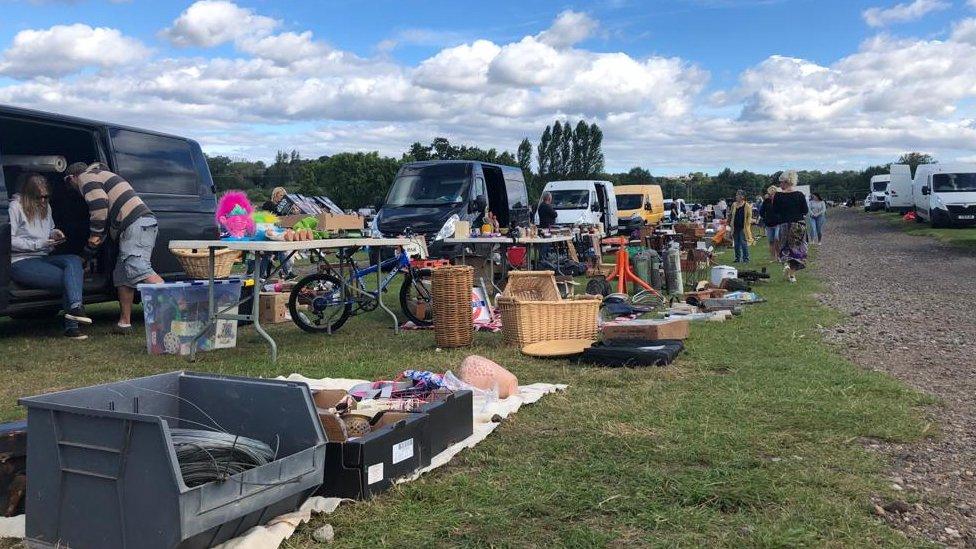
Sellers set up their stalls here from 05:30 BST - on Sundays and Wednesdays
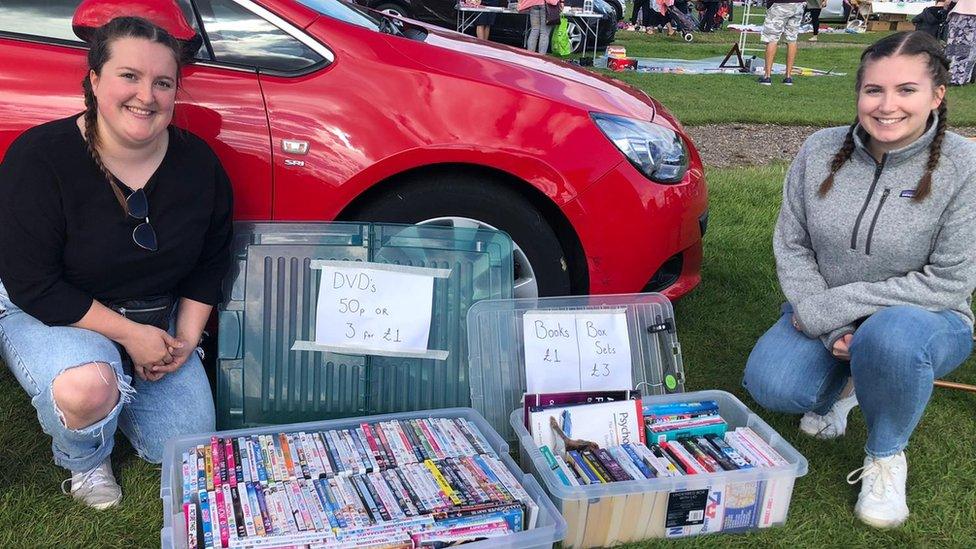
Megan Briggs and Fiona Smith are selling up before taking a year out in Australia
To get the event back up and running post-lockdown, landowner and organiser Mark Sadd has put in a one-way system for buyers, with each stall two metres apart. Sellers arrive to set up two hours before buyers and they have moved to contactless payment.
An overflow car park allows numbers to be controlled and when it gets busy, a one-in one-out operation unfolds.
"It's like a miniature version of passport control at the airport," joked Mr Sadd, who was at the site from 04:00 BST.
He said that so far, the feedback had been positive and he hopes the car boot will become busier as time goes on.
"As soon as the government said we could restart, there was a lot of soul-searching on how we'd do it. We didn't know where we were going with it until we came down and started putting barriers up to see what it looked like.
"Because of the size of the site, you are reliant on people using their own common sense."
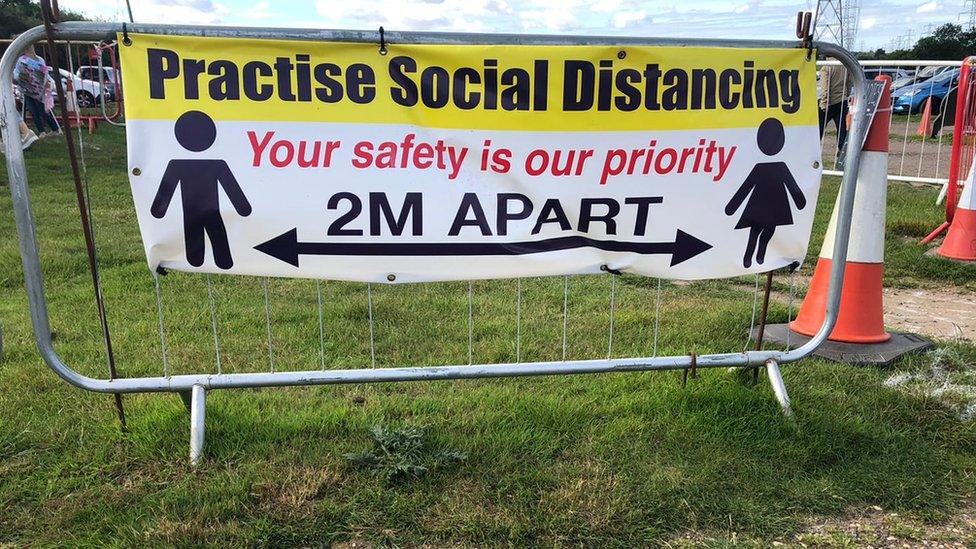
Arminghall has introduced a raft of post-Covid measures, including social distancing and a one-way system
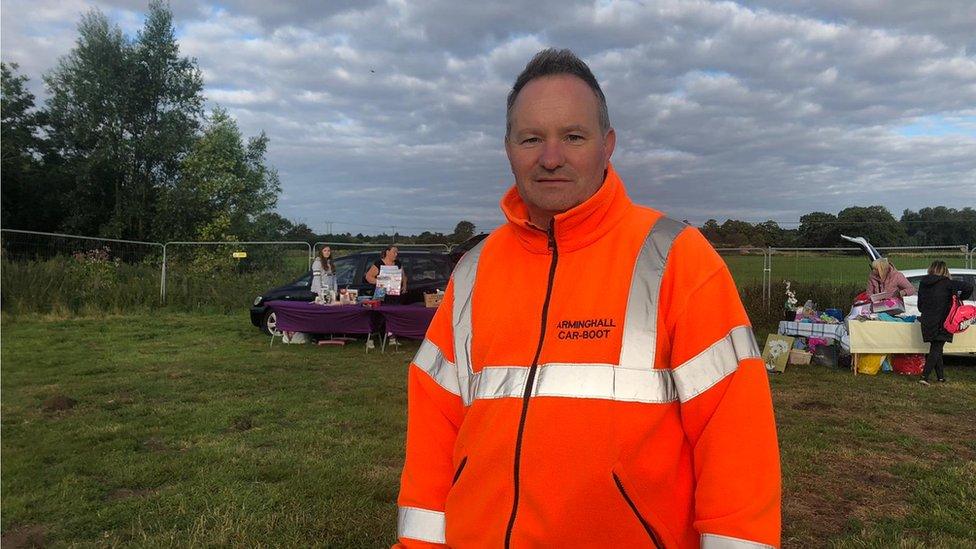
Mark Sadd described it as being "like passport control"
The farm has been in Mr Sadd's family since 1985 and the car boot has been running since 1987. It's been a full family affair since 2010, with Mr Sadd's sister Charlotte running the catering, his brother-in-law Vernon Ellis co-organising, and his wife Maria collecting stall fees.
"The new way of working, buyers and sellers love it," he said. "It works like a dream. We can get 1,000 to 1,200 people at a time.
"Separating the start time for sellers and buyers has really worked, it gives people peace of mind."
The very nature of a car boot sale - outside, with plenty of space - lends itself quite nicely to adhering to social distancing rules. But what's it like for those behind the tables hoping to make a decent day of sales?
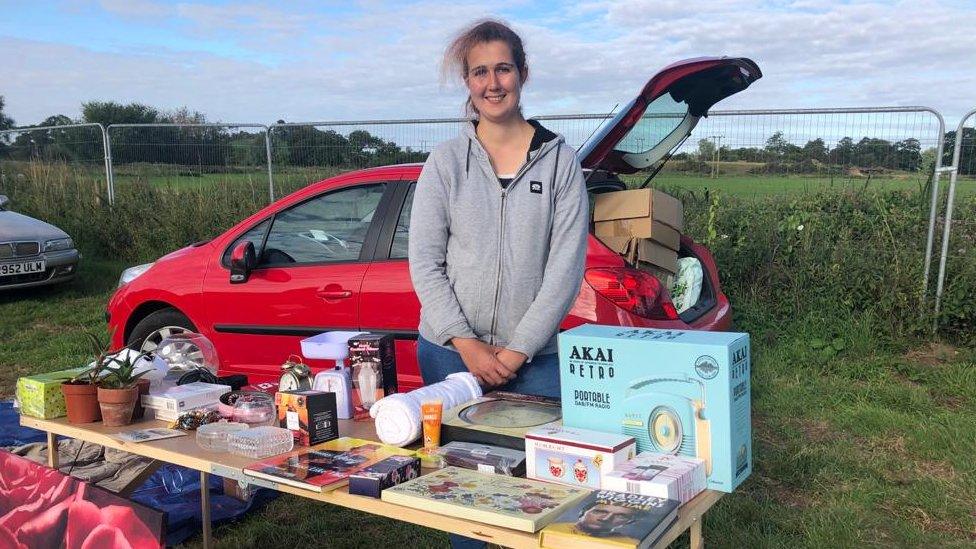
Victoria Pyne says she is "selling off things I don't need"
Megan Briggs, from Hull, and Fiona Smith from Derby, have recently completed their studies at the University of East Anglia. The contents of their house are up for grabs and the proceeds will go towards a year working in Australia.
"We're flogging everything and going minimal," Megan said. "Anything we can't take with us will be better off in someone else's home."
However, the boxes of DVDs are not the top sellers they imagined.
"At the last car boot we made £10 - but entry was £8 so we only made two quid," Fiona added.
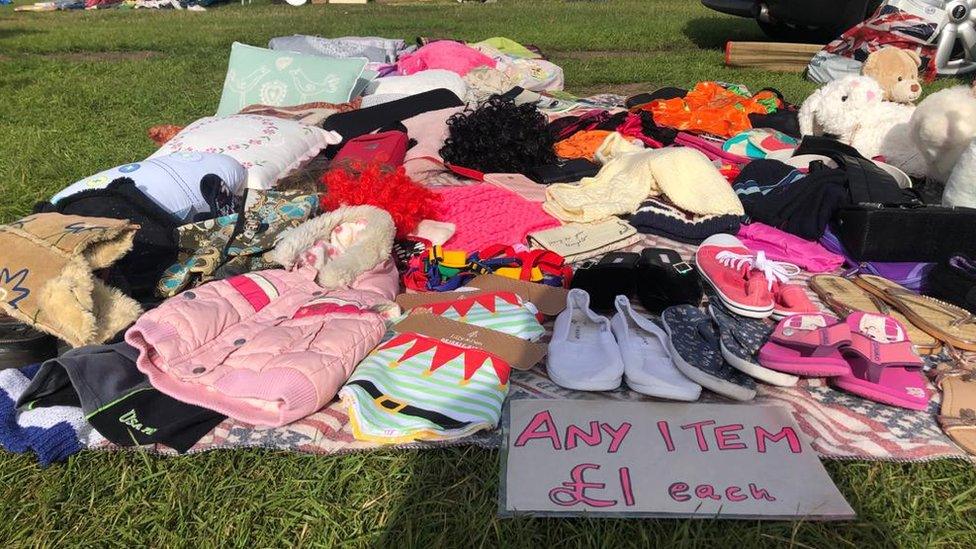
Car boot sales reopened across England on 1 June
Stallholder Victoria Pyne has travelled from Thetford to set up her stall. The 24-year-old chef has been on furlough for three months and will return to work next week.
"During lockdown I organised everything and decided to sell off the things I didn't need," she said.
"Being outside is better than inside, there's much more room and you don't have to have much contact with the customers. I only let them touch things if they intend to buy them.
"It's a good thing to get rid of stuff for money rather than take it to landfill. I'll take the rest to a charity shop."
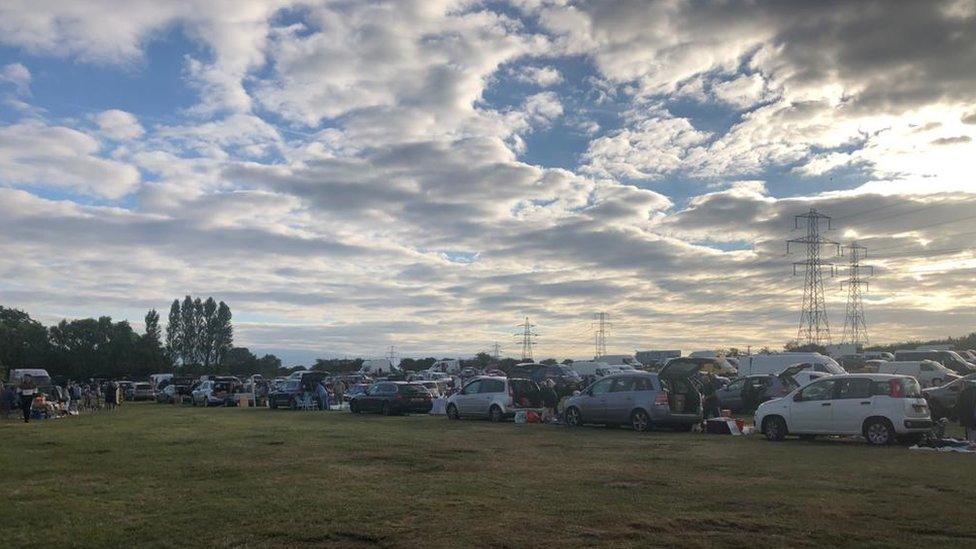
Up with the lark: The sun rising on Arminghall car boot sale
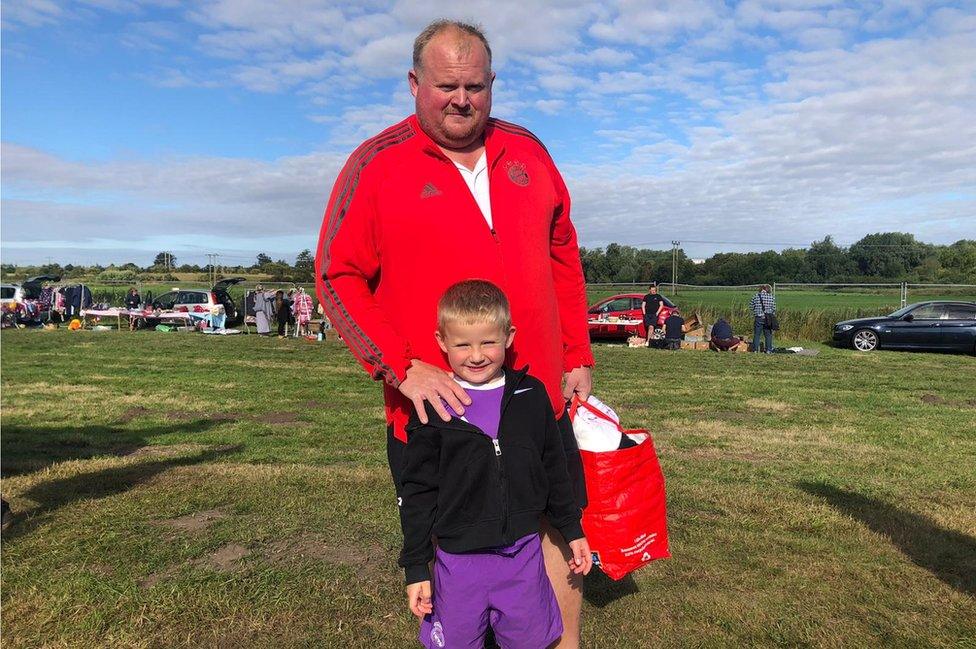
Damian Penk, with his son Alfie, 5, said bargain hunting has moved online
Damian Penk, a teacher from Stoke-on-Trent, is on holiday in Hemsby, Norfolk, but has come to Arminghall to indulge in his love of car boot sales.
"There's always that little bit of trepidation after lockdown with so many people but it seems pretty safe," said the 44-year-old.
"We're OK using cash, we carry hand gel everywhere, and we are wary of how close we are to people.
"My son's getting in on the [car boot] act. He does show-and-tell with the things he buys. Maybe he'll start his own channel with bargains he finds out there for kids."
You might also be interested in:
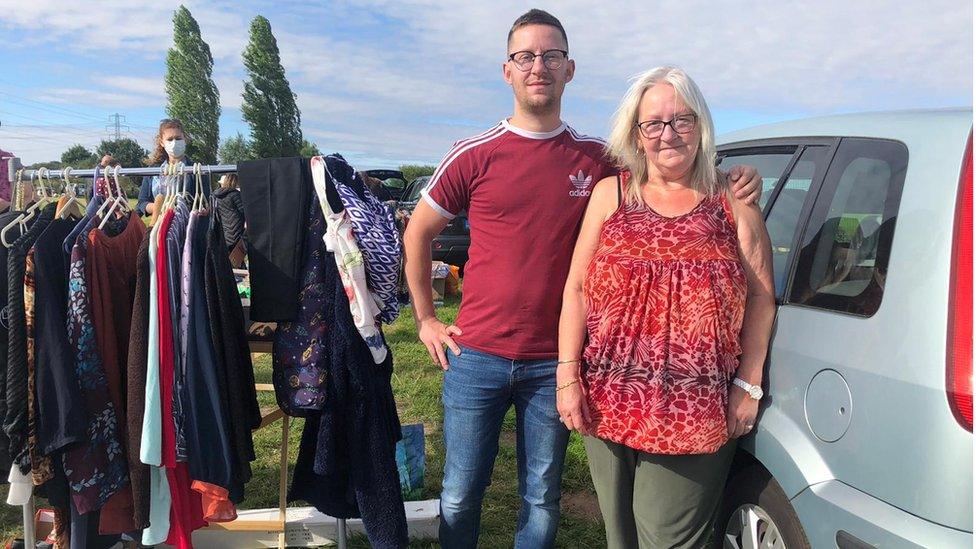
Gillian Belden described selling at the car boot as "like pocket money"
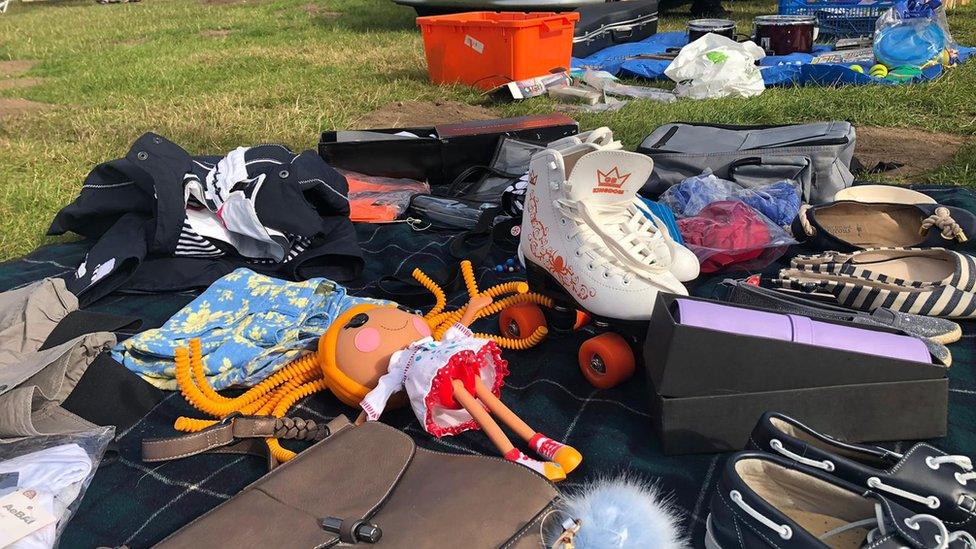
Bargain-hunters normally rummage but some stall-holders are asking people not to touch items unless they are buying them
Retired nurse and mother-of-four Gillian Belden, 65, has been running a stall for more than 30 years, but usually pitches up at a neighbouring car boot which has yet to reopen.
"This is like pocket money," she said. "Lockdown didn't bother me, I wasn't nervous about returning. When you're an ex-nurse you have to be aware anyway, wash your hands and that.
"But it's nice to get out and about and see people, especially when you're retired."
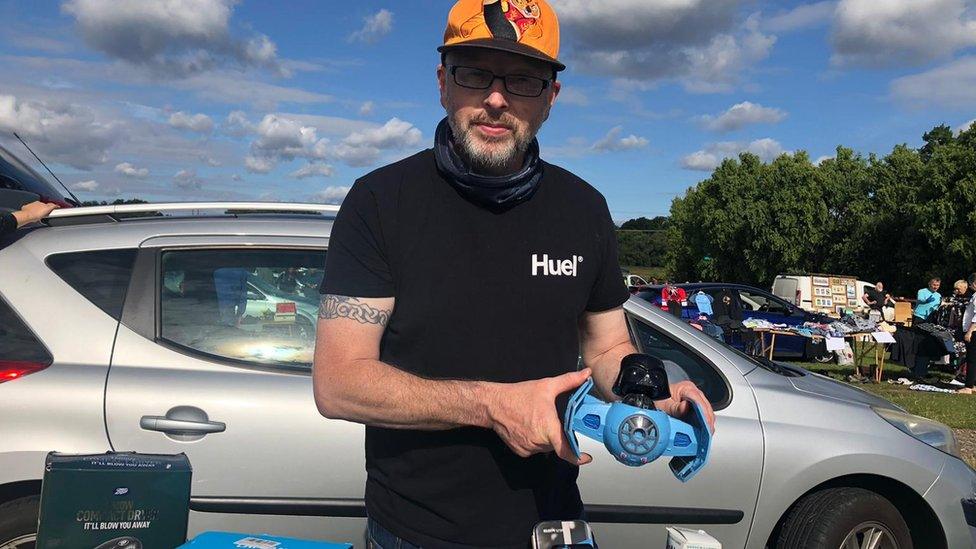
Father-of-two Jason Berry said the experience teaches kids about commerce
Jason Berry's stall is full of items that have been "sat around collecting dust... it's a bit of a house clearance, a chance to make a bit of space".
His children, who are five and eight, are sitting in the car watching him sell some of their old toys.
"It's good to get the kids involved," he said. "It's a good learning tool for commerce. If they want things, sell old stuff, collect the money and buy something else.
"But there's no rhyme or reason to what will sell. It's whoever rocks up on the day."

FACE MASKS: When should you wear one?
TESTING: Who can get a test and how?


Find BBC News: East of England on Facebook, external, Instagram, external and Twitter, external. If you have a story suggestion email eastofenglandnews@bbc.co.uk, external
- Published16 June 2020
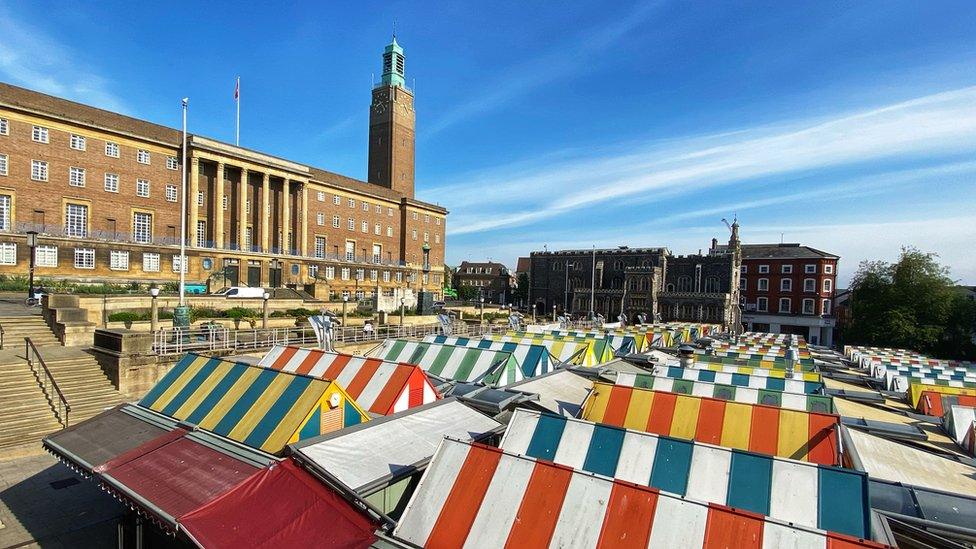
- Published1 June 2020
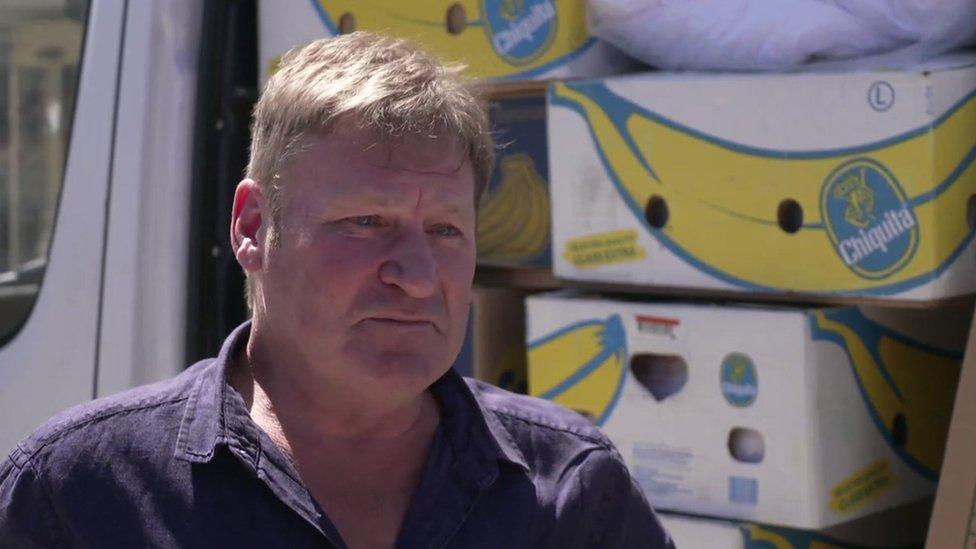
- Published22 March 2020
